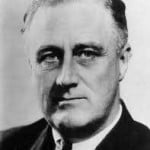The following brief account concerns the small controversy over the ecclesiastical views of Jonathan Edwards. There is a separate account, to the same conclusion, originally told by Dr. Archibald Alexander and then related by the Rev. R. J. Breckinridge on the pages of the Philadelphia magazine, The Presbyterian. [perhaps I can retrieve that article soon]. But for now, this account comes from a September issue of The Christian Observer, 1850 :
PRES. EDWARDS, A PRESBYTERIAN.
In a letter to the Rev. Dr. Erskine of Scotland, President Edwards , (whom Robert Hall calls, “the greatest of the sons of men,”) gives the following statement of his views in respect to Presbyterianism :—
“You are pleased, dear sir, very kindly to ask me, whether I could sign the Westminster Confession of Faith, and submit to the Presbyterian Form of Government. As to my subscribing to the substance of the Westminster Confession, there would be no difficulty; and as to Presbyterian Government, I have long been perfectly out of conceit of our unsettled, independent, confused way of Church government in this land, and the Presbyterian way has ever appeared to me most agreeable to the word of God, and the reason and nature of things.”
Such were the views of many pastors in New England, twenty-five years ago—and such we presume, are the views of many at this time, notwithstanding the efforts of Dr. Bacon, the Independent and others, to create and waken up prejudice against Presbyterianism.—It is very natural for an agitator, a man of progress, or of loose views in theology, to prefer some type of Independency. Without a Session to advise with him in the spiritual oversight of the Congregation, he can (if a manager) have his own way in controlling everything in his church. If a careful and discreet ruler, he may acquire more power in his charge as an Independent, than he could hope to gain as a Presbyterian minister.—Amenable to no permanent judicatory for the doctrines which he teaches, he can follow the impulses of his own nature, and teach all the contradictions and transcendentalism found in Dr. Bushnell’s book without losing his place or influence in his church and association.
But if it be desirable that the members of the Church should be duly represented in the administration of its spiritual government,—if the pastor should have responsible counselors, well acquainted with the Church, and all its interests and peculiarities, to aid him in this work, the Presbyterian form of government is to be preferred. It is equally important as a shield to the minister in many cases of discipline, as well as to render him duly responsible for his personal and official conduct, teaching, and character.
[excerpted from The Christian Observer, Vol. XXIX, No. 38 (21 September 1850): 150, columns 2-3.]
The question now, of course, is did that letter survive? Where are Erskine’s papers, including his correspondence, and which institution preserves that collection?

